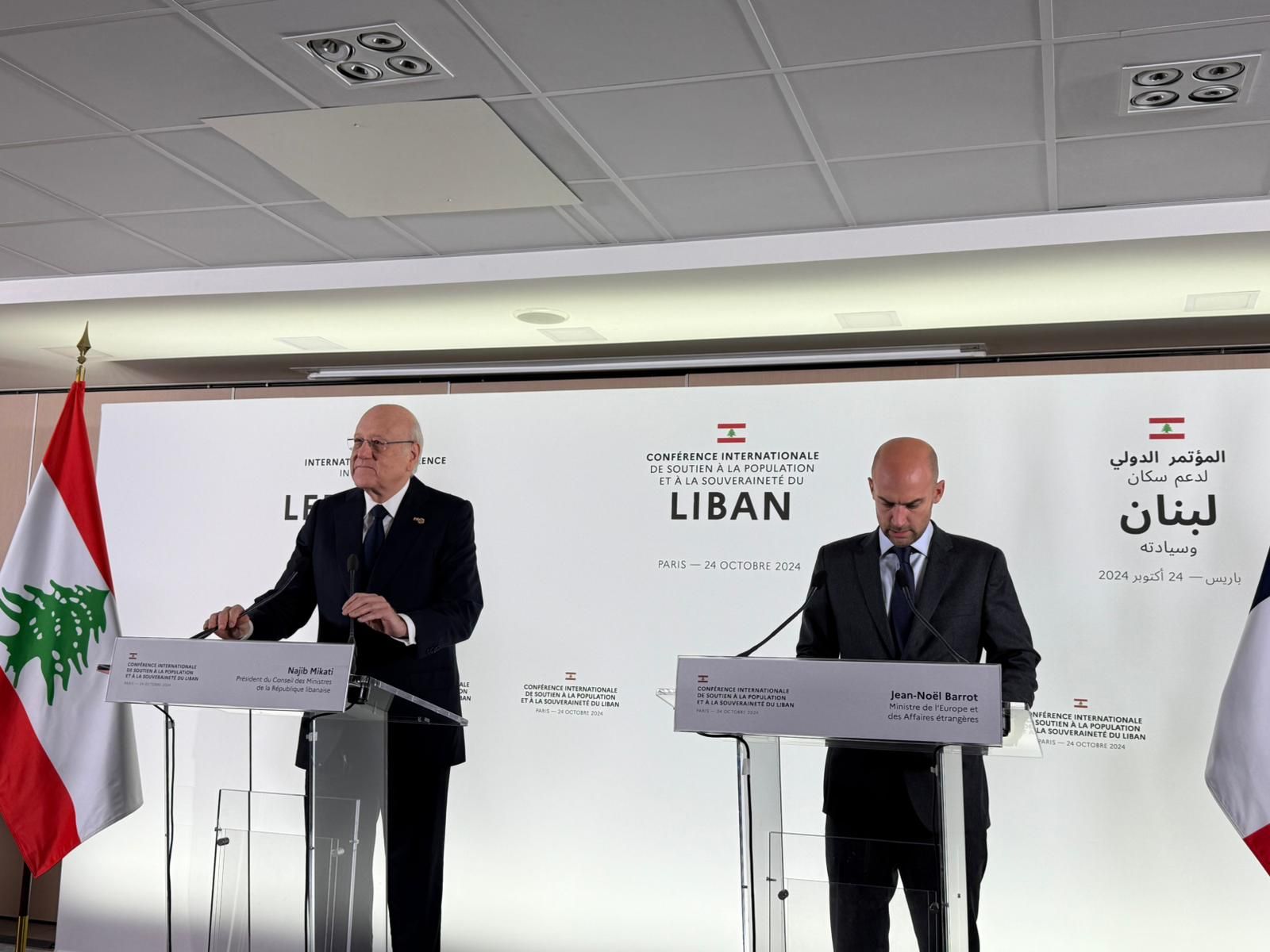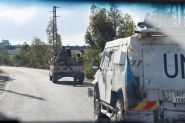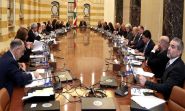
The Paris conference to support Lebanon, held on Thursday, raised around $800 million for humanitarian aid but saw little diplomatic progress as fighting continues between Israel and Hezbollah.
"In total, we have jointly gathered $800 million in humanitarian aid," French Foreign Minister Jean-Noel Barrot told participants as the conference closed.
He added that there were a further "$200 million for the security forces" bringing the total to "almost a billion, even more than a billion... with the latest contributions".
The total far outstrips both France's target of 500 million euros and the 400 million originally requested by the UN for Lebanon, where over 2,500 people had been killed and over one million displaced in fighting since late September.
"We have risen to the occasion" with financial support, Barrot told participants, with major pledges including $300 million from the United States, 100 million euros ($108 million) from France, 95 million from Germany and at least 15 million pounds ($20 million) from Britain.
Nevertheless, "we cannot limit ourselves to a humanitarian and security response... we have to bring about a diplomatic solution," he added.
Calls for ceasefire and diplomatic solution
"The war must end as soon as possible, there must be a ceasefire in Lebanon," Macron said sitting alongside the country's caretaker Prime Minister Najib Mikati.
The Lebanese government chief in turn called on "the international community to hold together and support efforts to implement an immediate ceasefire".
As well as its financial contribution, Macron said Paris would "contribute to equipping the Lebanese army" to re-establish control of the country's south in line with UN Security Council resolution 1701, which sealed the end of the last Israel-Hezbollah war in 2006.
Paris is also seeking an increase in humanitarian aid for a country to which it has historic ties and which has a large diaspora in France.
Hezbollah must "stop its provocations and indiscriminate strikes" against Israel, Macron said.
But Israel "knows from experience that its military successes do not necessarily represent victory in Lebanon," French President stated.
Israel has eliminated several Hezbollah leaders over recent weeks.
"I'm not sure that you can defend a civilization by sowing barbarism yourself," Macron added.
Hopes for diplomatic progress in Paris may be stymied by the absence of Iran and Israel, who were not among the 70 countries and 15 international organizations invited, while the US was represented only by a deputy to Secretary of State Antony Blinken.
Speaking remotely, United Nations Secretary-General Antonio Guterres called on participants to "strengthen their support to (Lebanon's) state institutions, including the Lebanese armed forces".
Host France is pushing for progress on three fronts: diplomacy, humanitarian aid and Lebanon's domestic politics.
Paris has pushed, alongside the United States, for a 21-day ceasefire to give space to negotiate a more lasting truce.
Diplomacy offers "the only viable solution for Lebanon as well as for Israel", where 60,000 people have also fled their homes, Barrot said.
"Anything that does not bring about an immediate end to the destruction and killing would make this summit a failure," said Bachir Ayoub, aid group Oxfam's Lebanon chief.
Oxfam was among over 150 aid groups to denounce on Thursday "flagrant disregard for international law by the international community" over Israel's military actions in Gaza, the West Bank and Lebanon.
"Without accountability, there will be no red lines," they added.
Back to UN Security Council resolution 1701
UN Development Program chief Achim Steiner warned that Lebanon's economy was "beginning to collapse under the pressure of this conflict," predicting a contraction of more than nine percent this year if the war continues.
That could hamper efforts to build up Lebanon's institutions and especially its armed forces, "to preserve the country's unity, stability and sovereignty" as Barrot hoped.
"Resolution 1701 remains the cornerstone of stability and security in southern Lebanon," Mikati said, echoing France's view.
As well as stipulating that the only armed forces on Lebanon's border with Israel should be UN peacekeepers and the Lebanese army, 1701 says no foreign forces should enter Lebanon without the government's consent.
Conference participants may offer training, equipment and funding to keep the Lebanese army functioning and allow new recruitment so it is strong enough to do its job.
With Delphine Touitou / AFP



Comments